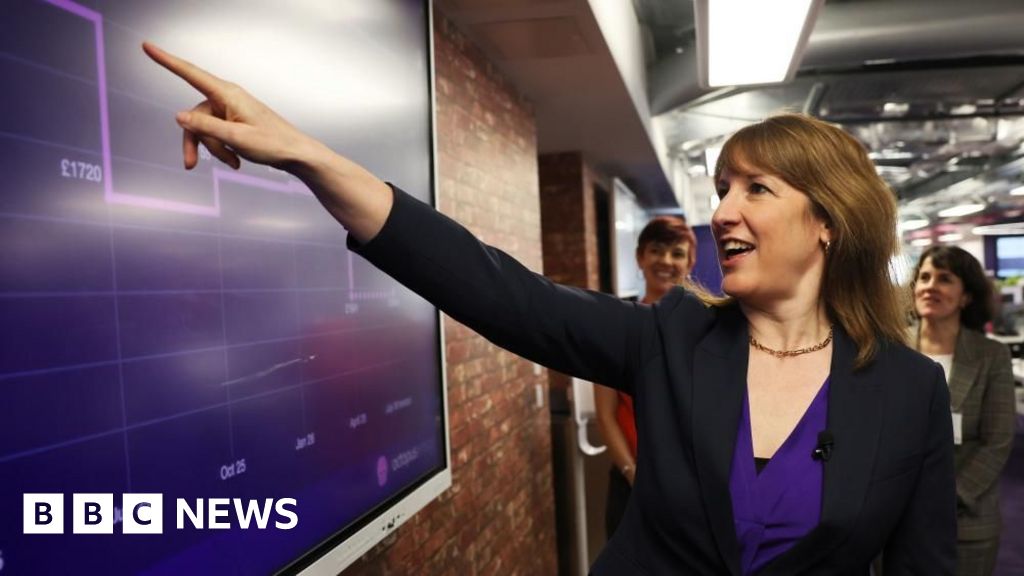Business
House-buying reform plan aims to cut costs and time

Charlotte EdwardsBusiness reporter, BBC News
 Getty Images
Getty ImagesPlans for a major reform of the house-buying system, which aim to cut costs, reduce delays and halve failed sales, have been unveiled by the government.
Under the new proposals, sellers and estate agents will be legally required to provide key information about a property up front, and the option of binding contracts could stop either party walking away late in the process.
The government estimates the overhaul could save first-time buyers an average of £710 and shave four weeks off the time it takes to complete a typical property deal.
But sellers at the end of a chain may face increased initial costs of £310 and, while broadly welcoming the move, housing experts say more detail is needed.
Previous attempts at mandating sellers to offer key information – through home information packs – were scrapped owing to complaints that it discouraged or delayed sellers in putting homes on the market.
The broader issue of housing affordability remains a block for many potential property purchasers, especially first-time buyers.
And many home buyers would not benefit from the estimated savings, as the calculations include the average cost of failed transactions that some might not experience.
Collapsing chains
There has long been frustration in England and Wales over the length and jeopardy of the house-buying process for buyers and sellers, such as slow paperwork, ‘gazumping’ — when successful buyers are outbid at the last minute — and broken chains.
Typically in England it takes about six months.
The 12-week consultation on these plans draws on other jurisdictions, including the Scottish system where there is more upfront information and earlier binding contracts making the process quicker.
This will include being up front about the condition of the home, any leasehold costs, and details of property chains.
The government says this transparency will reduce the risk of deals collapsing late in the process and improve confidence among buyers, particularly those purchasing a home for the first time.
It says those in the middle of a chain could also potentially gain a net saving of £400 as a result of the increased costs from selling being outweighed by lower buying expenses, as well as more competition in the sector.
Housing minister Miatta Fahnbulleh told BBC Breakfast the plans to get sellers to arrange the house survey means buyers would get all the information “upfront”.
“You know what you’re getting, you don’t have this thing that every time, for example, there is a new buyer because the transaction failed and you need to do another survey,” she said.
“In Scotland, where they do this, you see that it drives down the number of failed transactions.”
Housing is a devolved issue but the department said it wanted views from across the UK, and the coverage of the proposals would depend on how the measures were finalised.
Contracts and fines
The proposals suggest a “long-term” option of binding contracts is intended to halve the number of failed transactions, which currently cost the UK economy an estimated £1.5bn a year.
Anyone who breaks the contract could face fines, but no firm details are yet provided on how this would work, and what would be considered as justified reasons to leave the contract.
Surveys suggest about a third of buyers had experienced gazumping in the last 10 years.
The reforms also aim to boost professional standards across the housing sector.
A new mandatory Code of Practice for estate agents and conveyancers is being proposed, along with the introduction of side-by-side performance data to help buyers choose trusted professionals based on expertise and track record.
The government said further details the changes would be published in the new year, forming part of its broader housing strategy, which includes a pledge to build 1.5 million new homes.
Conservative shadow housing minister Paul Holmes said: “Whilst we welcome steps to digitise and speed up the process, this risks reinventing the last Labour government’s failed Home Information Packs – which reduced the number of homes put on sale, and duplicated costs across buyers and sellers.”
Housing expert Kirstie Allsopp, the presenter of Channel 4’s Location, Location, Location, told the BBC’s Today programme she was “really glad the government has grasped this nettle”.
She said it was important to focus on both the buying and selling sides, “because things fall through because buyers walk away just as much as sellers walk away, and I think that was a worrying element”.
But Babek Ismayil, chief executive of homebuying platform OneDome, said genuine integration of the process rather than more paperwork at the start was required.
“There’s a risk of unintended consequences: requiring sellers and agents to gather more upfront information could delay properties coming onto the market,” he said.
“In a market where boosting supply is critical, any added friction must be carefully managed to avoid slowing things down.”
The announcement comes as the Conservatives propose changes to its tax policy for first home buyers at the party’s conference in Manchester.
The party plans to “reward work” by giving young people a £5,000 tax rebate towards their first home when they get their first full time job, if the return to government.
Shadow chancellor Mel Stride announced proposals for a “first-job bonus” that would divert National Insurance payments into a long-term savings account.
The party say it will be funded by cuts to public spending worth £47bn over five years in areas such as welfare, the civil service and the foreign aid budget.

Business
The family-owned soda firm that stuck to returnable glass bottles

Soft drinks company Twig’s Beverage has a loyal following for its old-fashioned approach.
Source link
Business
Cost of living: Students praise ‘essential’ food bank service

Queen’s University Belfast says there were more than 10,500 visits by students to its food bank in the students’ union.
Source link
Business
Faisal Islam: Is Reeves right in saying we’re turning a corner?

The Chancellor is trying to use this moment as a launching pad for a wider attempt to gee up consumer and business confidence.
Source link
-

 Entertainment1 week ago
Entertainment1 week agoQueen Camilla reveals her sister’s connection to Princess Diana
-

 Tech1 week ago
Tech1 week agoRakuten Mobile proposal selected for Jaxa space strategy | Computer Weekly
-

 Politics1 week ago
Politics1 week agoRamadan moon sighted in Saudi Arabia, other Gulf countries
-

 Entertainment1 week ago
Entertainment1 week agoRobert Duvall, known for his roles in "The Godfather" and "Apocalypse Now," dies at 95
-

 Business1 week ago
Business1 week agoTax Saving FD: This Simple Investment Can Help You Earn And Save More
-

 Politics1 week ago
Politics1 week agoTarique Rahman Takes Oath as Bangladesh’s Prime Minister Following Decisive BNP Triumph
-

 Tech1 week ago
Tech1 week agoBusinesses may be caught by government proposals to restrict VPN use | Computer Weekly
-

 Sports1 week ago
Sports1 week agoUsman Tariq backs Babar and Shaheen ahead of do-or-die Namibia clash





